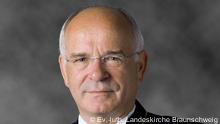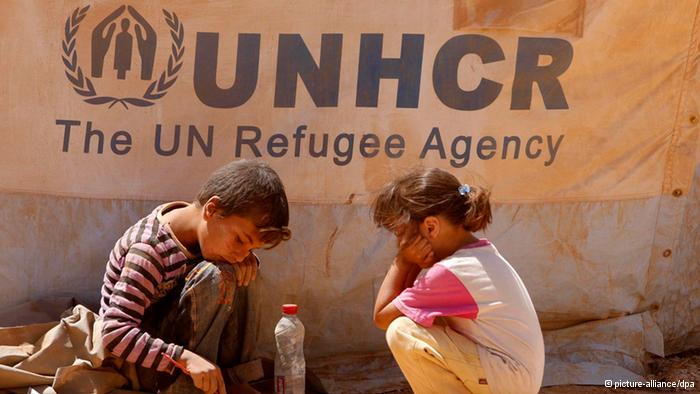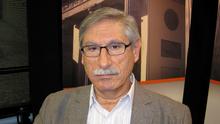By Martin Koch
November 13, 2012
 |
| Friedrich Weber Photo: Ev.-Luth. Landeskirche in Braunschweig. |
Germany taking in Syrian Christians - it would be an act of humanity. This is how the chairman of Chancellor Merkel's conservative Christian Democrats' parliamentary group, Volker Kauder, described it to the "Frankfurter Allgmeine Zeitung" daily. Interior Minister Hans-Peter Friedrich agreed in the newspaper to grant refuge to Syrian Christians, because they face "persecution of the highest order."
Christians under pressure
Christians have lived in the area of modern Syria since their religion came into being about two thousand years ago. The Syrian Orthodox Church is one of the oldest churches. Some of the faithful still speak Aramaic, the language of Jesus. Christians have always played a clear role in the present-day Syrian Arab Republic. In the 1940s, for example, the country had a Christian prime minister, Faris al-Churi.
Bishop Weber says Germany has a special obligation to help Christians
In Syria, Christians make up 8 to 10 percent of the population. About two-thirds of them belong to the Syriac Orthodox Church; other major groups are Roman Catholics and Assyrians. Under President Bashar Assad, they lived relatively unmolested; in comparison to other countries in the Arab world, the Christians in Syria had a lot of freedom. But since the beginning of the uprising against the government, the regime has tried to portray the resistance as a religious rebellion and bring the Christians to its side. This makes them suspect in the eyes of some opponents of the regime.
For political scientist Ralph Ghadban, this impression is understandable. When fighting in Syria began 18 months ago, most official church representatives actually sided with Assad. But, Ghadban told DW, many Christians have since changed their attitude: For example, the newly elected Christian head of the opposition Syrian National Council, George Sabra, called for support to the rebels fighting the government.
 |
| Syrian children play in front of their tent at Zaatari Syrian refugee camp, in Mafraq, Jordan (picture: EPA/Jamal Nasrallah/ dpa) |
Syria- land of minorities
In an interview with DW, the Chairman of the German Council of Christian Churches (ACK), Bishop Friedrich Weber, offered support to the proposal to take in Syrian Christians: "Germany is a country shaped by Christianity. These are our brothers and sisters, they are close to us, so we have a special obligation to take a stand and not to be indifferent."
Ghadban disagreed strongly: "Giving preferential treatment to a group is really only an option if it is established that they are persecuted and there is no evidence, either from the local Christians, or from Rome that such persecution is taking place." Ghadban, a native of Lebanon who has lived and worked for 40 years in Germany, demands that Christians should not be treated differently from all other refugees. He said that Syria has always been a country of minorities: Kurds, Druze, Christians, Alawites, Yazidi and many other religious and ethnic groups in the country have lived together for centuries, largely peacefully.
Local support
 |
| Ralph Ghadban. |
What's more, the situation in Syria is not easy to understand: There are Christians who support Assad's troops and others who have joined the rebels. Observers say the government is deliberately targeting Christians, while they are simultaneously exposed to reprisals by Islamists in refugee camps.
Nevertheless, bringing Christians to Germany and other European countries should be a last resort, Ghadban said. During his 17 years working with refugees, he learned that it was more useful to support refugees near their home - in this case, in places such as Jordan, Turkey and Lebanon: "First, it costs less than if they were financed here in Germany, and secondly, it is a good investment because they can return home afterward, when the war is over. This is better for Syria than if they just leave."
Weber agreed: "Yes, we also hear this from them. That's why many remain in the camps, despite kidnappings and persecution. The initial focus of aid must go there." In addition, Christians are often highly educated, and thus particularly important for the reconstruction of a country, he said.
